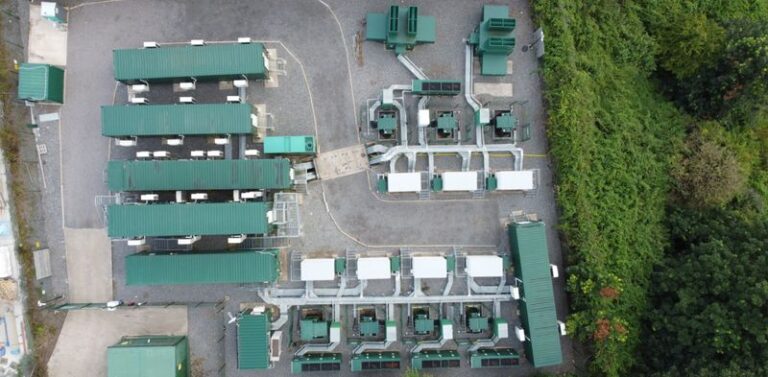Gresham House, Britain’s largest owner of battery energy storage systems (BESS), has said it believes tolling deals such as those agreed with Octopus are possible “across the optimization market”.
The investment manager has a short-term target portfolio of 1,072 MW through its Gresham House Energy Storage Fund. About half of this is now part of a two-year tolling agreement with Octopus, which will pay a fixed fee and assume operations and revenues for a total of 568 MW.
James Bustin, assistant fund manager at Gresham House, New Energy, said Energy storage.news that the deal was based on a revenue trial for a single project, looking at whether the contracts could be balanced between supply and demand.
Bustin said: “The BESS is fundamentally about balancing supply and demand, and we were trying to demonstrate that on a small basis, so we used a single part of a site,” he said.
“BESS has shown a lot of value and we didn’t see that with the ESO (the British electricity market operator) at the time. We saw an opportunity there and discussed it with several parties. Some were excited, some not so excited, and we landed on Octopus. It is very focused on renewable energy sources and that fits in well with BESS.”
Particularly because the Octopus deal grew out of a smaller pilot, Bustin said Gresham House sees it as something that is possible in the broader optimization market.
“This has made the wider market aware that this is an option. It is not just for large suppliers, even though a large supplier has advantages such as a balanced portfolio.”
Capacity market more accessible for BESS projects
Under the toll agreement with GRID, Octopus will use the BESS projects’ batteries at a price determined by the duration of the assets, excluding capacity market (CM) payments that the projects will receive individually.
National Grid ESO’s first update of the factor reduction methodology in six years was implemented this year in the Electricity Capacity Report. The changes to Scaled Equivalent Firm Capacity (EFC) will increase the value of battery storage in the immediate next auctions, in February 2025.
The proposals do not appear to apply to existing capacity market agreements.
The complete conversation with James Bustin is available on our sister site, Energy-Storage.new, with a Premium subscription.


